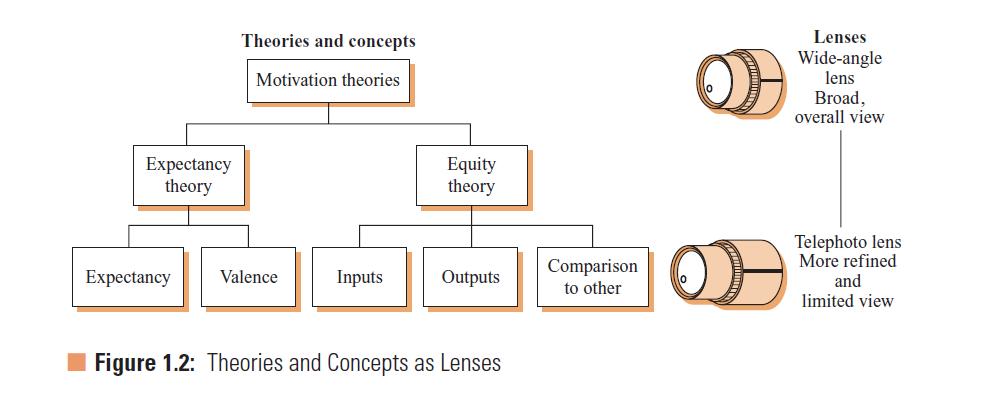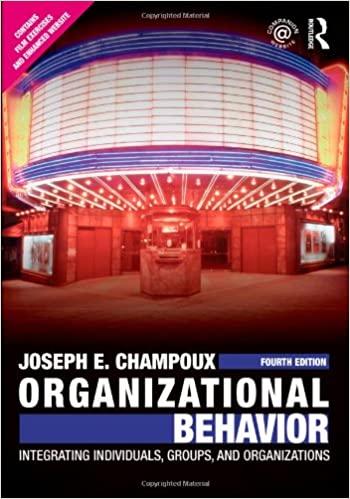Henri Fayol developed the beginning of a theory of administration. Review the major concepts from his theory.
Question:
Henri Fayol developed the beginning of a theory of administration. Review the major concepts from his theory. What are the relationships among the concepts?
Theories and Concepts as Lenses
Scientists have long recognized that theories from different scientific disciplines give different views of problems, issues, and questions. Different theoretical perspectives help scientists derive multiple answers to a single question. Similarly, using theories and concepts lets you bring different views to the same organizational issue, problem, or question.
Scientists use theories and concepts in much the same way that photographers use zoom lenses or lenses of different focal lengths. A normal lens has an angle of view about the same as human vision. A wide-angle lens gives a broad view of a scene. A telephoto lens lets a photographer isolate the part of a scene on which he wants to concentrate. Photographers often start with an overview of a scene. They then move in and out with a zoom lens or lenses of different focal lengths depending on what they want to emphasize. You can do the same with theories and concepts.
Figure 1.2 shows the relationship between theories and concepts and how they can act as camera lenses. Let us assume that you are interested in understanding why someone is not doing a job as well as he could. As later chapters explain, motivation is an important element in job performance (the broad view of the scene). Two theories of motivation are expectancy theory and equity theory. You might choose either theory to help you understand the performance problem.
Expectancy theory can help narrow the view of the scene with its concepts of expectancy and valence. Expectancy is a person’s belief that performance leads to an expected outcome. Valence is the preference people have among outcomes. These concepts act as telephoto lenses. Applying each concept to the performance problem focuses your attention on limited parts of the problem. Expectancy focuses on a person’s performance–outcome belief, and valence focuses on a person’s preference among outcomes.
Just as a skilled photographer switches lenses or uses a zoom lens to view a scene from several perspectives, you will learn to use concepts to view behavioral phenomena in organizations from many perspectives. A skilled manager knows the concepts and moves quickly from one to another to analyze and solve problems in an organization.
Step by Step Answer:

Organizational Behavior Integrating Individuals Groups And Organizations
ISBN: 9780415804646
4th Edition
Authors: Joseph E. Champoux





